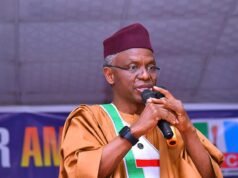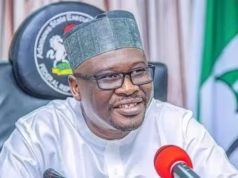In a major announcement on September 18, 2025, Google revealed plans to invest more than US$1 billion into artificial intelligence (AI) and internet infrastructure across Africa. The purpose: to open doors for millions of young Africans, giving them access to digital tools, high-speed internet, and skills training — in short, to empower the continent’s rising generation.
This move builds on Google’s long-standing engagement in Africa’s tech ecosystem. From its early involvement with the Seacom cable in 2006 to the Equiano submarine cable and fibre-optic initiatives, the company says this newest investment era aims to bridge the digital divide, deepen regional connectivity, and prepare youth for a future defined by AI.

Table of Contents
New Subsea Cables & Connectivity Hubs: Connecting More of Africa
A major part of Google’s plan involves building four new subsea cable connectivity hubs in strategic locations across the continent. These hubs are designed to expand both regional and international data corridors, strengthening Africa’s digital backbone.
Google’s Africa Connect programme, which already includes significant projects such as:
- Equiano fibre-optic cable along Africa’s western coast
- Umoja, the first fibre route directly linking Africa to Australia
- A full Google Cloud region in Johannesburg
…is being expanded to ensure more resilient, secure, and faster internet access. According to Google, past investments have already helped over 100 million Africans come online. The Equiano cable alone is projected to contribute substantially to GDP growth in major economies, including Nigeria, South Africa, and Namibia.

Bridging the Skills Gap: AI Training & Education
Google’s investment doesn’t stop at hardware. A large component is devoted to education, training, and tools that bring AI and digital skills closer to youth across many African countries.
Here are some of the major commitments:
- Free one-year subscriptions to Gemini AI Pro for university students in nations such as Egypt, Ghana, Kenya, Morocco, Nigeria, Rwanda, South Africa, and Zimbabwe. These tools will support research work, coding, content creation, class assignments, and more.
- To date, Google has trained 7 million Africans in digital and AI skills, and plans to hit 10 million by 2030.
- Over the past four years, the company has invested more than US$17 million in African universities and research institutions, with an additional US$9 million pledged for future support.
- Expanding linguistic inclusion: Google Translate has added 110 languages, of which over 30 are African. The firm is also working on speech models and datasets for more than 50 languages.
Moreover, research projects in Kenya and Ghana are already yielding local innovations: from flood forecasting and data mapping to agricultural tools — all built in partnership with local teams. Google aims to reach 500 million Africans via AI-powered solutions by 2030.

Why This Matters: Opportunities, Challenges & What’s Next
For Africa, the timing of Google’s investment comes with both urgency and opportunity. The continent already has the world’s fastest-growing youth population, projected to exceed 830 million by 2050. Many of these young people live in regions where internet access is limited or unreliable, and where AI and modern tech skills are still luxuries rather than norms.
By expanding connectivity and investing in tools, Google hopes to prevent a new form of exclusion — ensuring that as AI becomes central to education, business, and governance, Africans are not left behind.
Still, challenges remain: building infrastructure in remote or underserved areas is costly and logistically complex; ensuring reliable power; addressing language barriers; maintaining affordable access; and ensuring that AI tools are used ethically and responsibly.
A critical part of the success of these efforts will be partnerships — with governments, educational bodies, NGOs, tech hubs, and local innovators — to tailor solutions to local needs.
Join Our Social Media Channels:
WhatsApp: NaijaEyes
Facebook: NaijaEyes
Twitter: NaijaEyes
Instagram: NaijaEyes
TikTok: NaijaEyes





